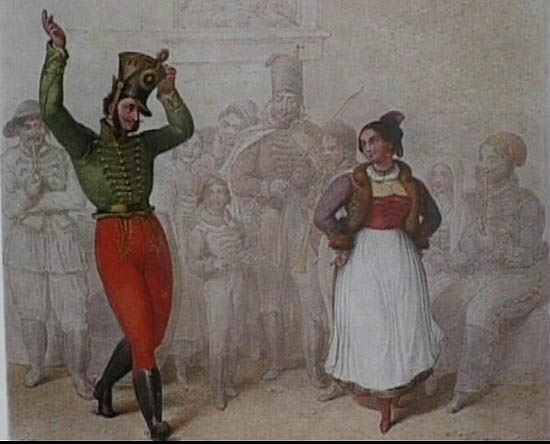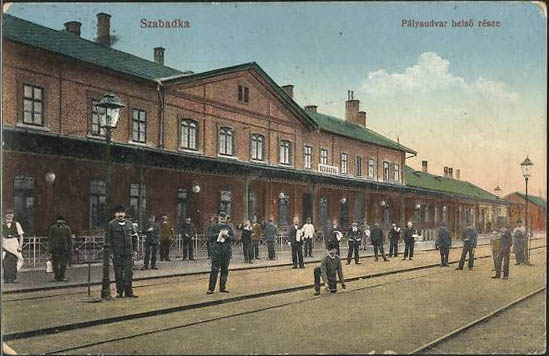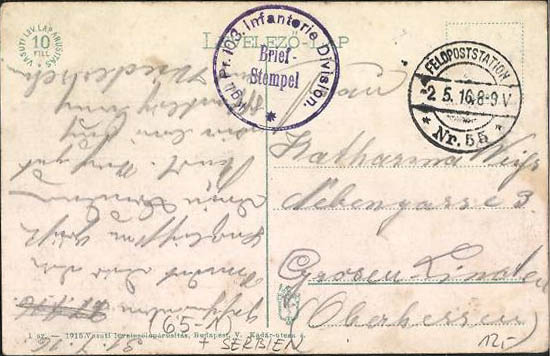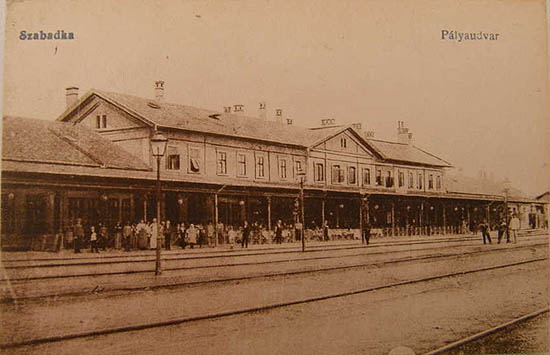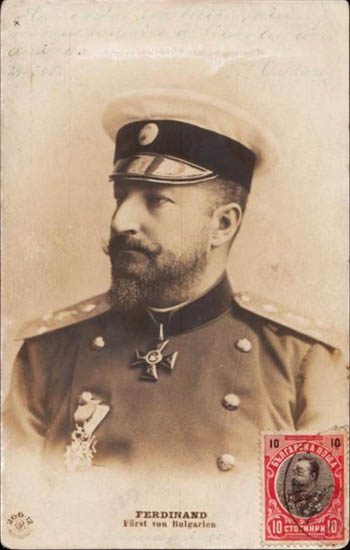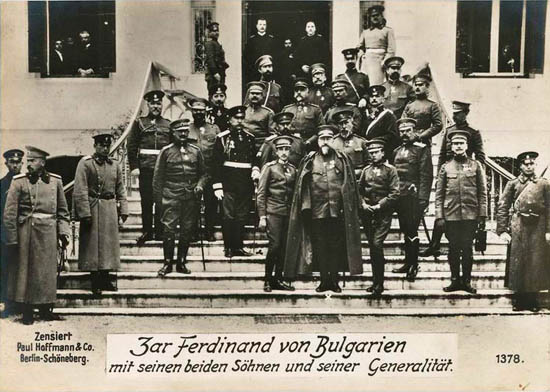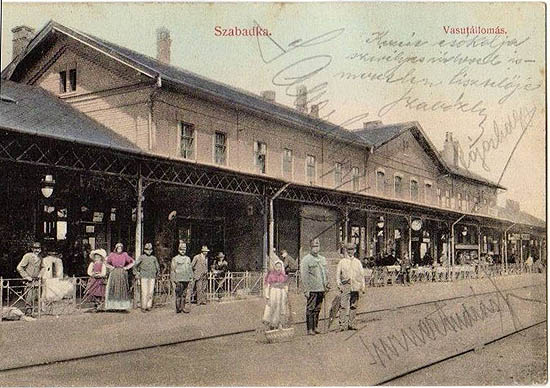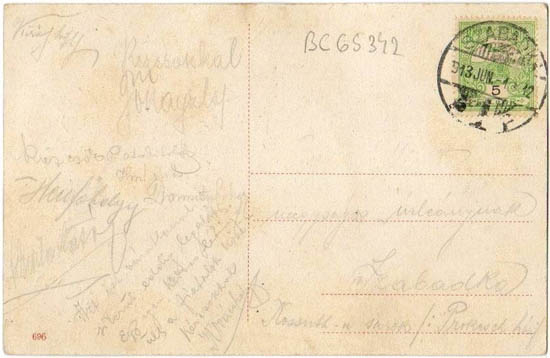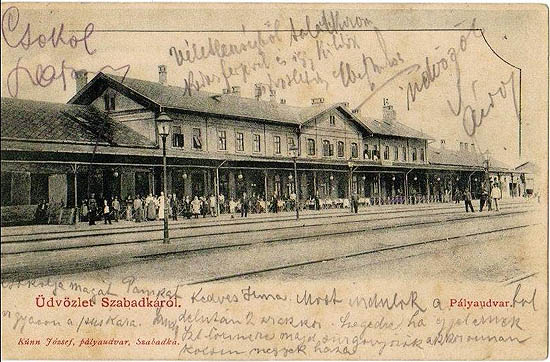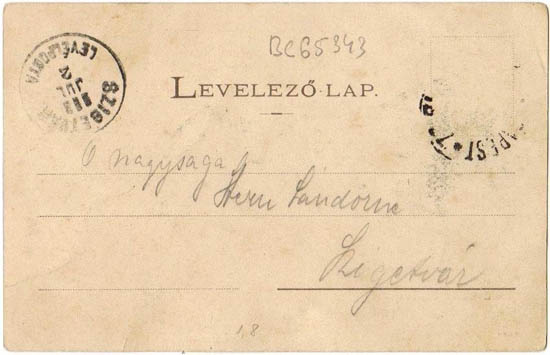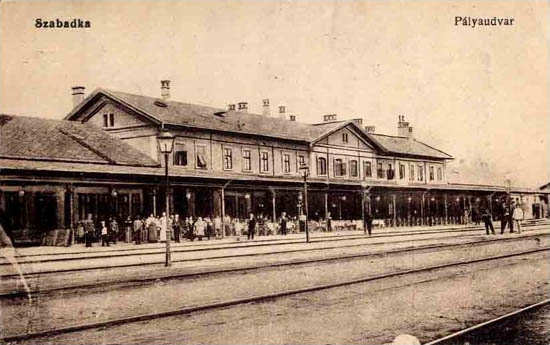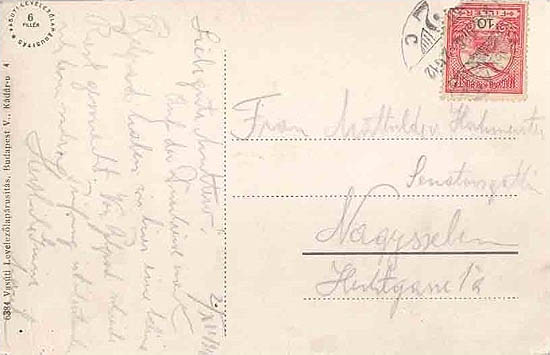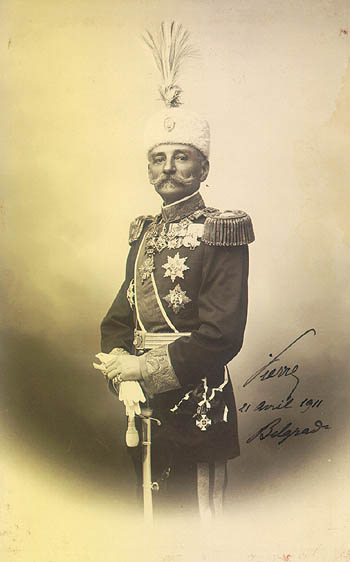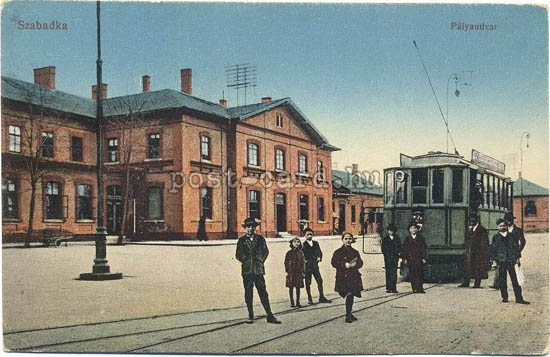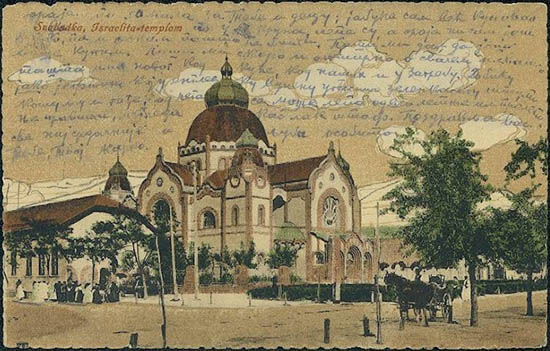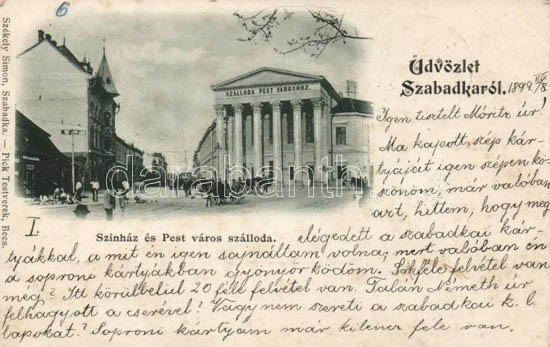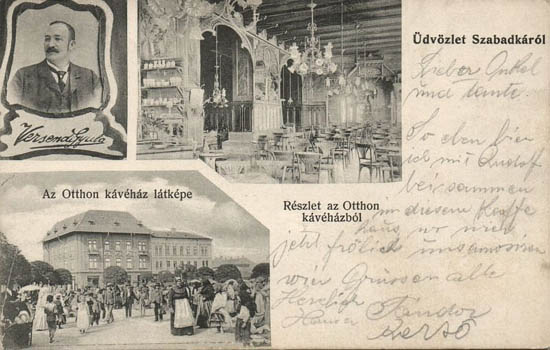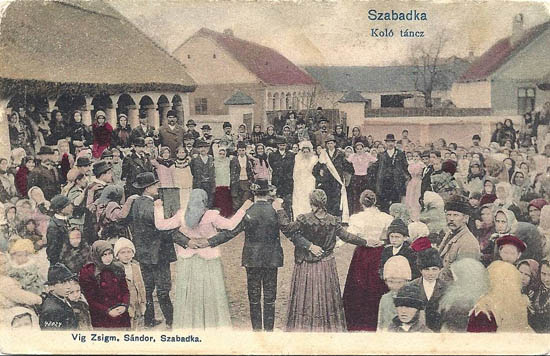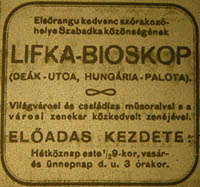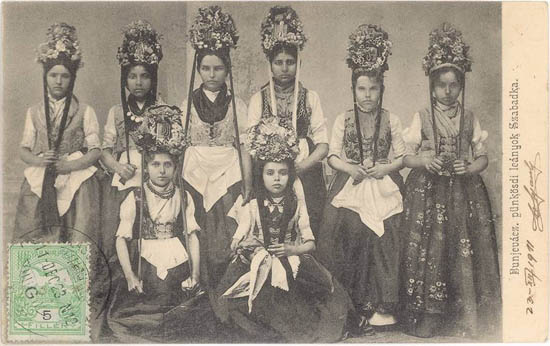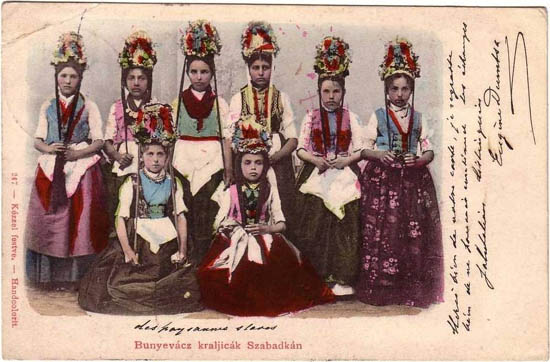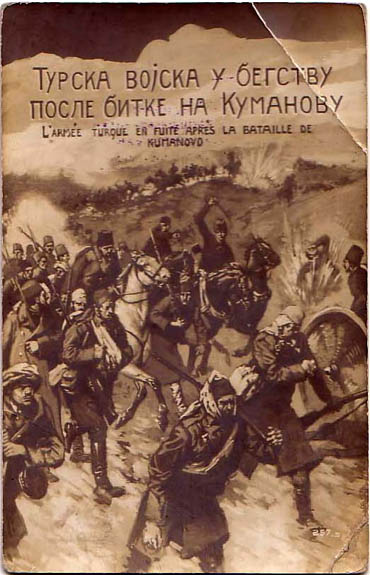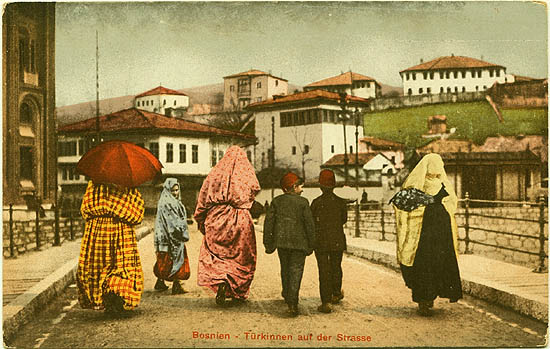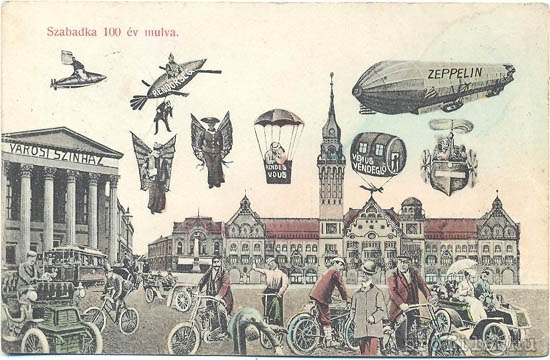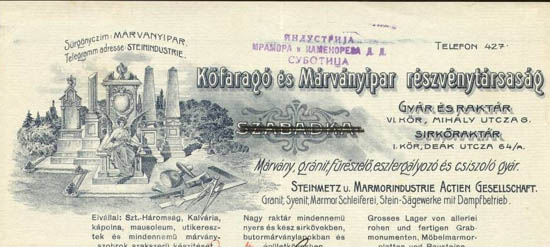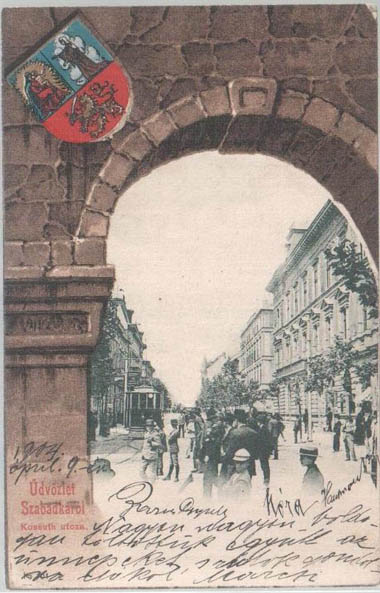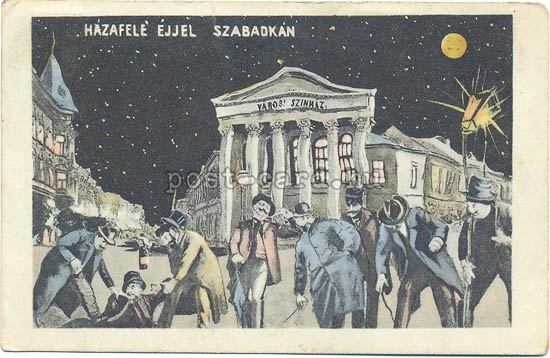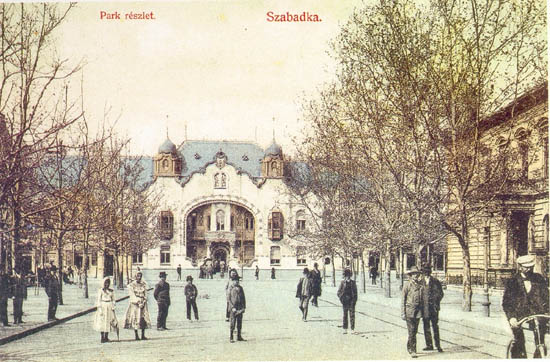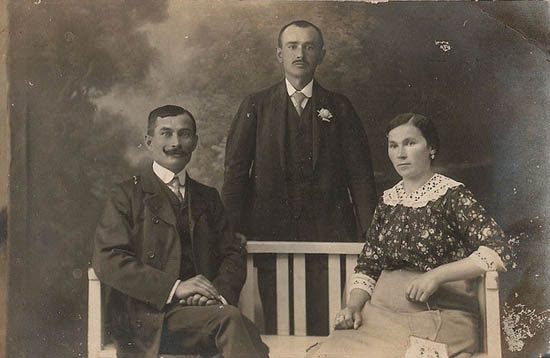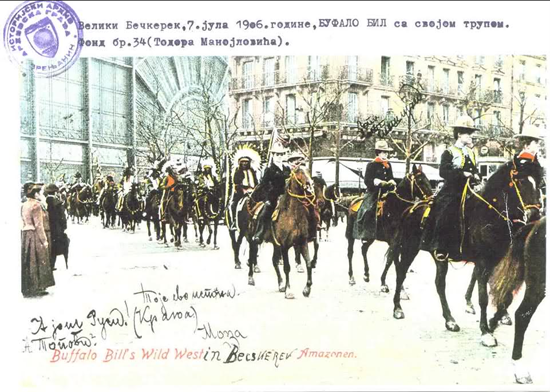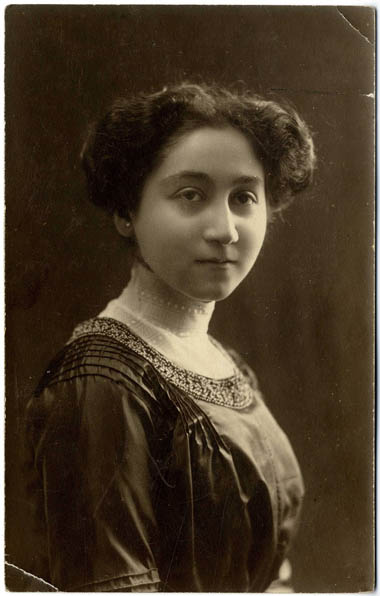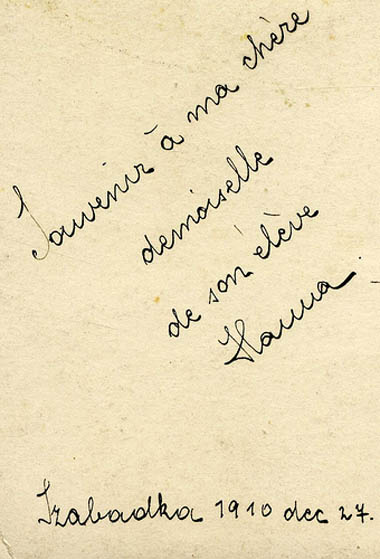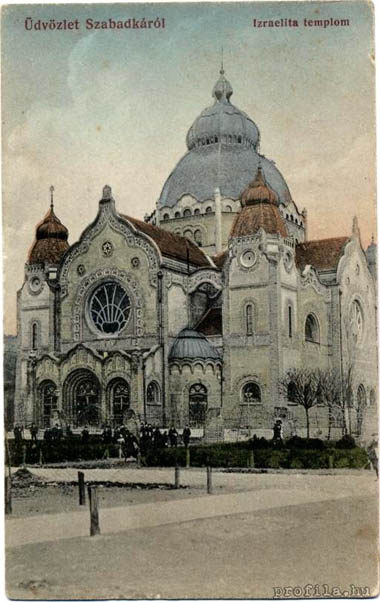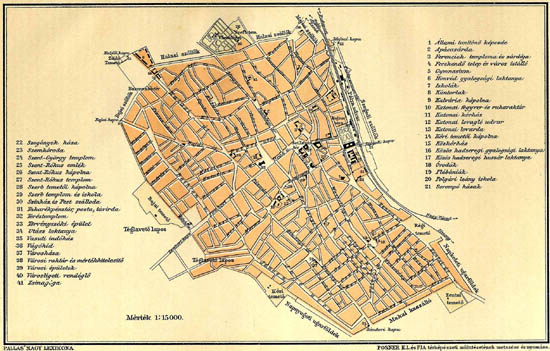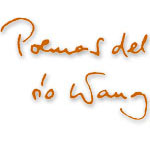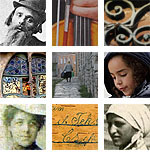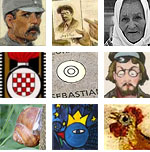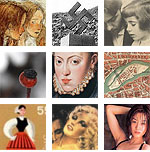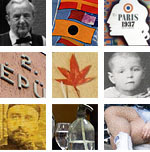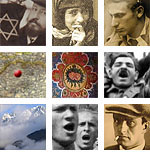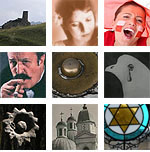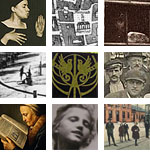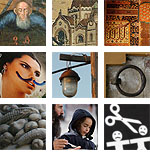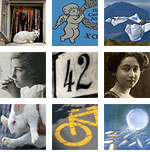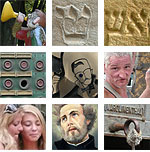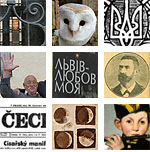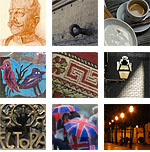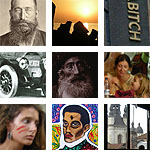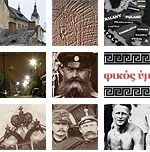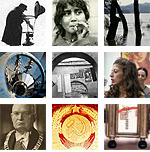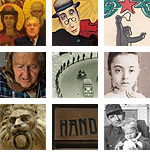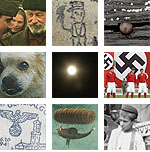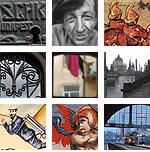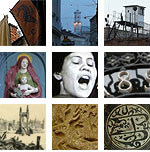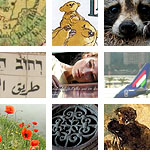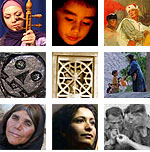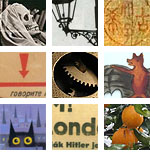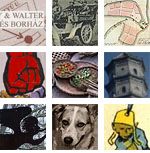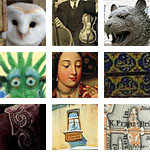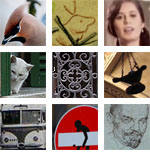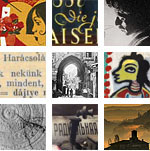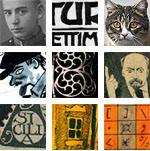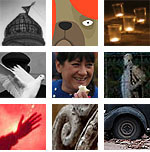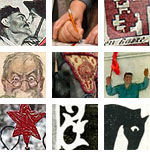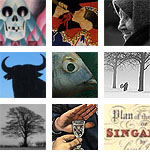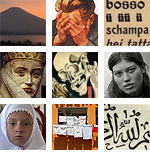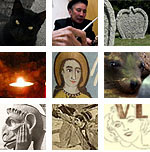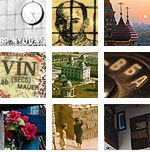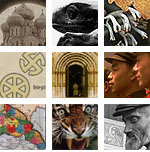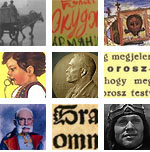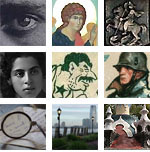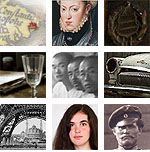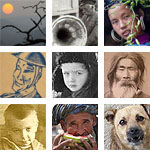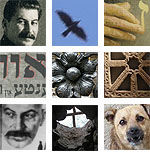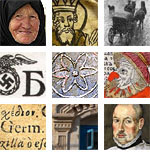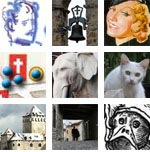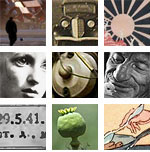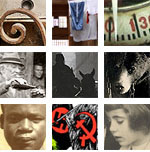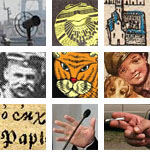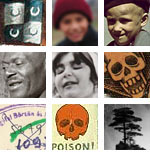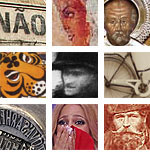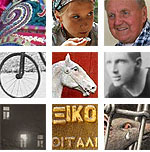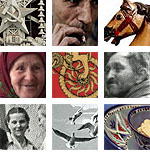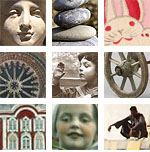
In Moscow I encountered very few references to Hungary or to the Hungarians at all. The following little picture analysis records one of these rare cases. This painting was photographed in the Historical Museum, at the exhibition organized for the 250th anniversary of Catherine II’s accession to the throne. It was painted in the late 18th century, and bears the title “
Political balance, that is, the balance of European powers in 1791”. Its purpose is to present in an allegorical form the consolidation of Russia’s international significance.
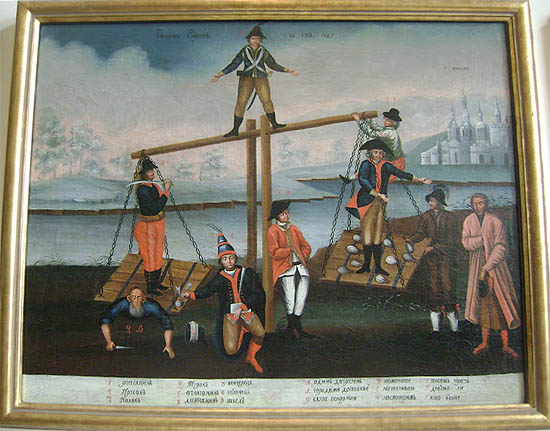
We see nine players on a small stage, for which the unknown artist, as the label shows, chose
Danzig as a background.
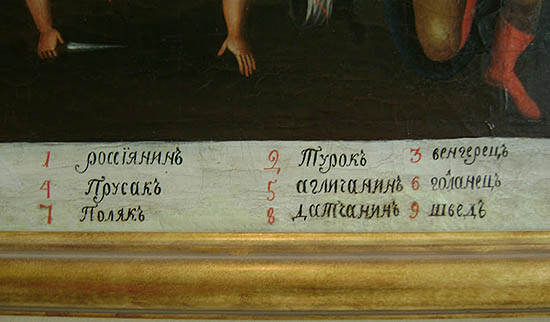
The numbered actors are: 1.
Russian (Not
russky, however, but the politically correct
rossiyanin, “inhabitant of Russia”, still in use today. The old, Latin-like
i has two dots, such as in today’s Ukrainian, e.g. Київ. 2.
Turkish 3.
Hungarian (
vengerets) 4.
Prussian (
prusak) 5.
English (incorrectly:
aglichanin!) 6.
Dutch (
golanets, this is also wrong; the second
l is written above, but the
d is still missing) 7.
Polish 8.
Danish 9.
Svedish.
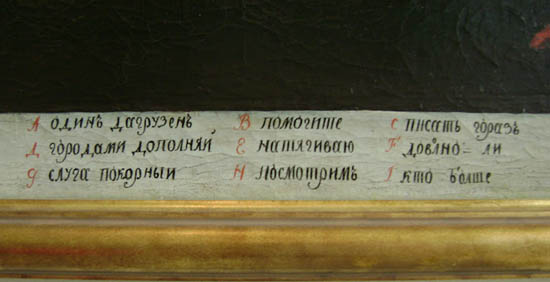
Next to each identification number we find a letter with an explanative part, which characterizes with a few words – sometimes worth a whole phrase – the weight of the respective nation and its role in the “European concert”, as 19th-century diplomats will call the politics of power. Let us look at each of the characters.
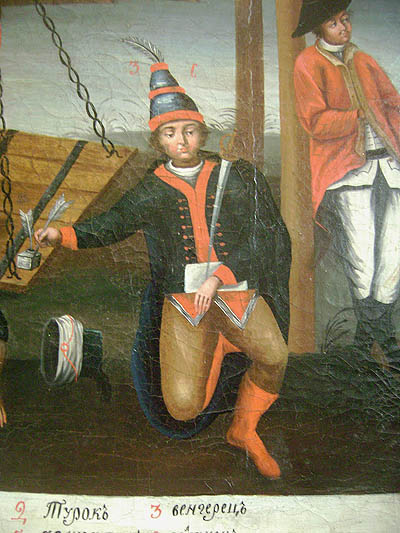
In the appearance of the Hungarian perhaps only the pants are those of the hussars, the rest seems to be deprived of all Hungarian characteristic. Facing out of the picture, he drops on one knee, and dips his pen in the ink bottle in one of the two pans of the scales. Next to his letter “
C” there is written:
pisat’ goraz. I can interpret this from
gorazd meaning “capable”. He keeps his sword at the tip with his left hand, which may indicate that he no longer wants to fight, but he is still
capable to write. In the middle, leaning against the bar of the scales and with his back to the Russian, the Danish is gaping around. He as an outsider says:
Posmotrim – we’ll see!
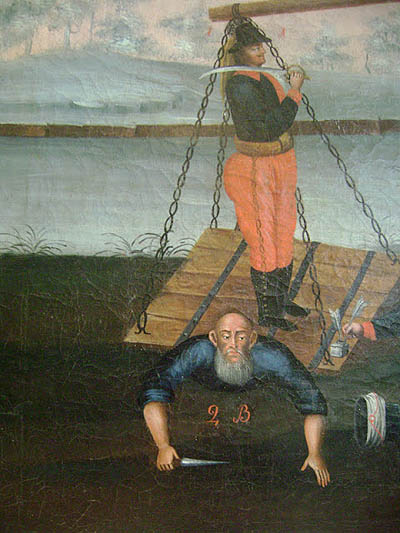
In one of the two pans the Russian is standing with a smile, and with the explanation:
odin da gruzen. This is clear: alone, but he is of weight. Under his feet lies the Turk, whose turban also rolled away. What else could the poor guy say:
Pomogite = help me! (By the end of the 18th century the Ottoman Empire lost the northern Black Sea coast to Russia.)
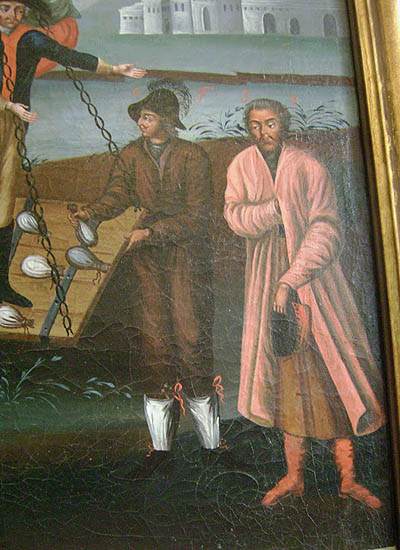
Two more figures are standing at the other pan of the scales. The one in a pink coat is the Pole, who in the period was considered a
sluga pokorny, a humble servant. (In fact, we are in the period of the three-time partition of the Polish aristocratic republic, when the Polish state became the plaything of the great powers.) Next to the Pole, the Dutch is eagerly putting the cash bags in the pan of the scale. He asks full of doubts:
dovolno li, will that be enough? (The painter, too hasty in writing, omitted one
o.)
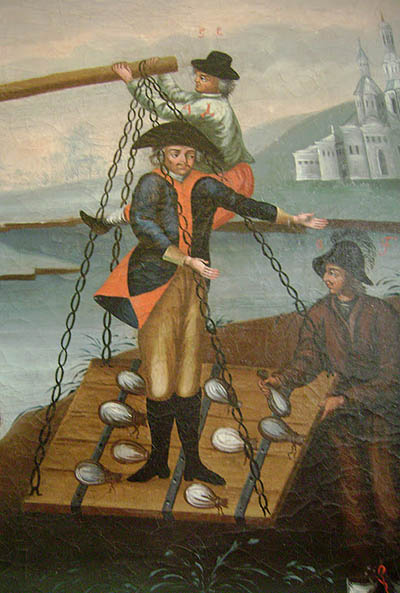
In this pan is standing the Prussian. His gesture is clearly asking for help, and he also says:
gorodami dopolnyai!, complete it with towns! Thus Prussia, which recently grew into a great power in the course of the 18th century, also requires the cession of cities. On this side we also see the English grabbing the beam.
Natyagivayu = I pull it! – he shouts, so the continental balance would develop according to his particular interests.
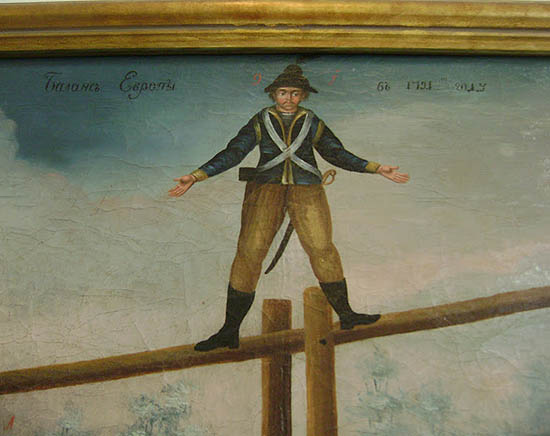
Finally, the Swedish balancing at the top of the see-saw does not actively interfere with the flow of events.
Kto bolshe? – Who weights more? Already Russia, even if only by a bit. I think that the court painter rejoiced Catherine with this analysis of the international situation.
The historical background could be long described, but I do not want to make boring this interesting visual assessment. I only add two notes. First, Danzig as a background is a bull’s-eye. Almost all the characters can be placed around the city: at the moment of the painting of the picture the Prussians stand before the walls of the city, and at the second partition of Poland, in 1793 they also annex it. Second, on the role of the “Hungarian scribe”. Around 1790 the role of the country really important, even if Hungary was no autonomous actor in the European politics. A special weight was lent to it by the quasi-rebellion against Joseph II, after which Austria becomes indecisive and, in the year of the painting, by giving up its alliance with Russia, signs a separate pace with the Turks in the Bulgarian Svishov, waiving the previously conquered Belgrade. The Prussians entered into an alliance with the Turks, Leopold II was forced to retreat, and thus Russia alone continued the Turkish war. This situation is illustrated by the kneeling hussar with the pen in the hand.
And finally, just focusing on ourselves: the peace of Svishov in 1791 closed the last (Austro-)Hungarian – Turkish war, in which 50 thousand Hungarian soldiers took part, including the hussars, who won themselves a European fame exactly in this period.
